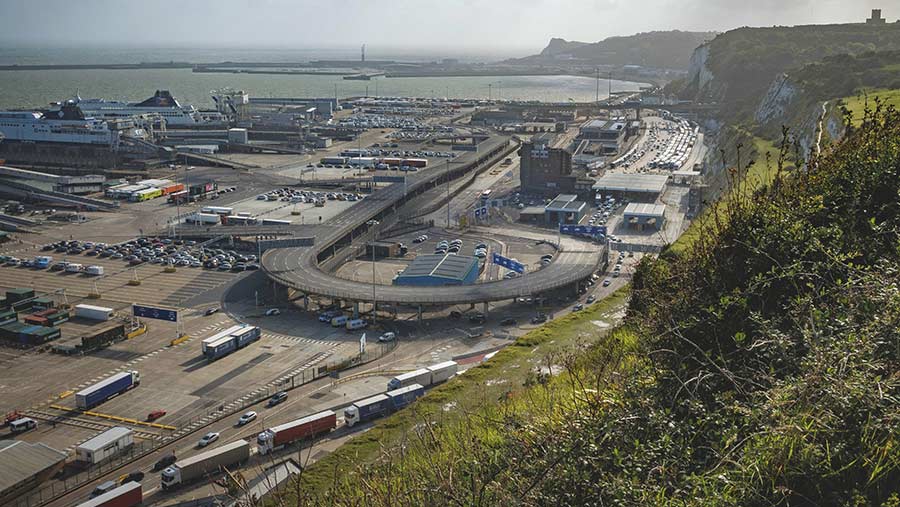Post-Brexit EU meat exports down 52% year-on-year
 © Mathieu/Adobe Stock
© Mathieu/Adobe Stock The difficult logistics around trading with the EU post-Brexit has continued to affect the UK’s export volumes, alongside the short-term implications of coronavirus lockdowns.
The latest UK trade data released by the Office of National Statistics (ONS), covering February 2021, showed improvement on the historic lows recorded in January 2021.
However, trade remained relatively depressed for the first two months of the year, and was significantly lower in February 2021 compared with February 2020, said AHDB senior policy analyst Tom Forshaw.
See also: Rule reminder: Best practice when trading livestock remotely
Exports of food and live animals were down about 31% (£713m) on January and February 2020.
In absolute value terms, exports of meat and meat preparations to the EU have been particularly affected, down £126m (52%).
In contrast, exports of meat preparations to the rest of the world have more than made up losses suffered in January. Exports in February 2021 totalled £65m, up by £23m (55%) on the previous year, resulting in total exports for January and February being up 13%.
Despite this, overall agri-food exports in February were lower than in 2020, meaning exports for 2021 are 10% lower year-on-year so far.
Imports
Meanwhile, imports of agri-food products to the UK are also continuing to be reported at lower values, said Mr Forshaw.
The value of food and live animal imports are down 11% (£673m) for the first two months of the year.
The vast majority (£655m) of these declines have come from EU trade, with meat, meat preparations, vegetables and fruit being particularly hit.
“The announcement last month of the delay to implementing the border-control plan will be welcome news to a number of importers,” he said.
“However, this could mean that further disruption is recorded down the line.”
Pre-notification and export health certification for animal products will not be required until 1 October 2021, and for low-risk plant and plant products until 1 January 2022.
Physical checks at the border will not take place on a range of agri-food products and high-risk plants until 1 January 2022.
Physical checks on live animals and low-risk plants and plant material will not take place until March 2022.
Pandemic effects
Additional paperwork and higher transportation costs were the biggest challenges facing UK importers and exporters in February.
However, trade patterns also likely reflected the effects of the unwinding of stocks, coronavirus pandemic restrictions, and lower demand due to the UK and global economic recession, according to the ONS.
“The continued stop-start of Covid lockdowns on the continent is likely to continue to affect trade going forward, with demand fluctuating as food service outlets open and close,” said Mr Forshaw.
“The path out of lockdown in the UK, if smooth and uninterrupted, should see food service demand pick up in the coming months, which would add further support to domestic prices.
“But it will also likely lead to an increase in imports, due to imported products over-indexing in the food-service sector, especially for meat and meat preparations.”
